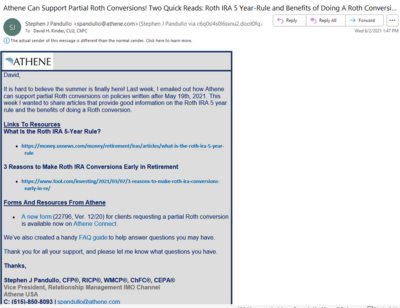- 11,503
I highly don't Van Mueller has a client with $1000 per month income in 0% tax bracket paying $85k yr in life premiums. I just don't foresee a case where someone is in the 0% tax bracket & they are put in 22%, 30,35% not to mention state, SS tax & Medicare premium surcharges would be well received by anyone reviewing the case details. Most reputable life carriers also have maximum % of income or liquid assets that can be used to pay life insurance premiums.
All in moderation I believe.
Watch the whole video sometime. It's 4 hours. He says he makes his largest sales in 800-1200 square foot homes where people are saving money out of their social security. He gets the client to tell the underwriters what the strategy is and, if insurable, to let them buy the policy to do what Van talks to them about.

